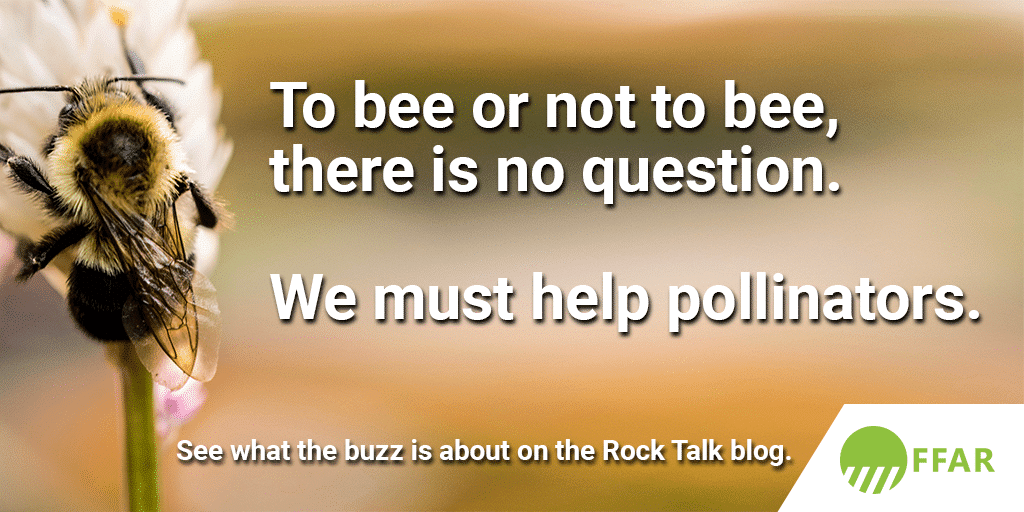Happy National Pollinator Week! This week, we honor the many insects and animals that allow agriculture to flourish.A pollinator is any animal that transfers pollen within a single plant or from one plant to another of the same species, aiding in the reproduction process. There are over 200,000 species that serve as pollinators, including bees, butterflies, birds and bats. Even lemurs in Madagascar are pollinators!
Healthy pollinator species are directly correlated to a thriving ecosystem. In fact, nearly 75% of all crops require pollination for producing the food we eat and it is estimated that approximately 1/3 of all food and beverage products come from pollinated plants. Farmers rely on pollinator species for higher quality crops and increased yield.
Yet pollinators have been declining since at least the mid-20th century. For managed honey bees, their population of 5 million in the 1940s has declined to 2.89 million today – that’s nearly half our bees disappearing! The Monarch butterfly population has declined by 95% just in the past two decades. The deterioration of these various species may be due to factors like increased use of herbicides and pesticides, urbanization and the spread of invasive species.
But it’s not just about numbers. Poor pollinator health leads to lower pollination efficiency, susceptibility to disease and decreased benefits to crops. We all have something to lose when our pollinators aren’t thriving.
At FFAR, we believe research and innovation will promote the growth of pollinator populations back to health. In 2017, FFAR awarded more than $7 million to 16 teams to support science and technology to support health and maintenance of various pollinator populations. These projects are funded by more than 50 universities, companies and organizations committed to improving pollinator health for a total investment of $14 million in pollinator health.
By working together, we can restore the health of our pollinators and ensure a flourishing future for agriculture.


Dr. Sally Rockey became the inaugural Executive Director of the Foundation for Food & Agriculture Research (FFAR) in September 2015. Prior to this role, Dr. Rockey was a leader in Federal research, overseeing the operations of the extramural programs in both agriculture and biomedicine. She spent 19 years with the U.S. Department of Agriculture before taking on the extramural research program at the National Institutes of Health. As Deputy Director for Extramural Research, Dr. Rockey led groundbreaking initiatives and activities that have and will have a lasting positive impact on the research community. Dr. Rockey received her Ph.D. in Entomology from the Ohio State University.